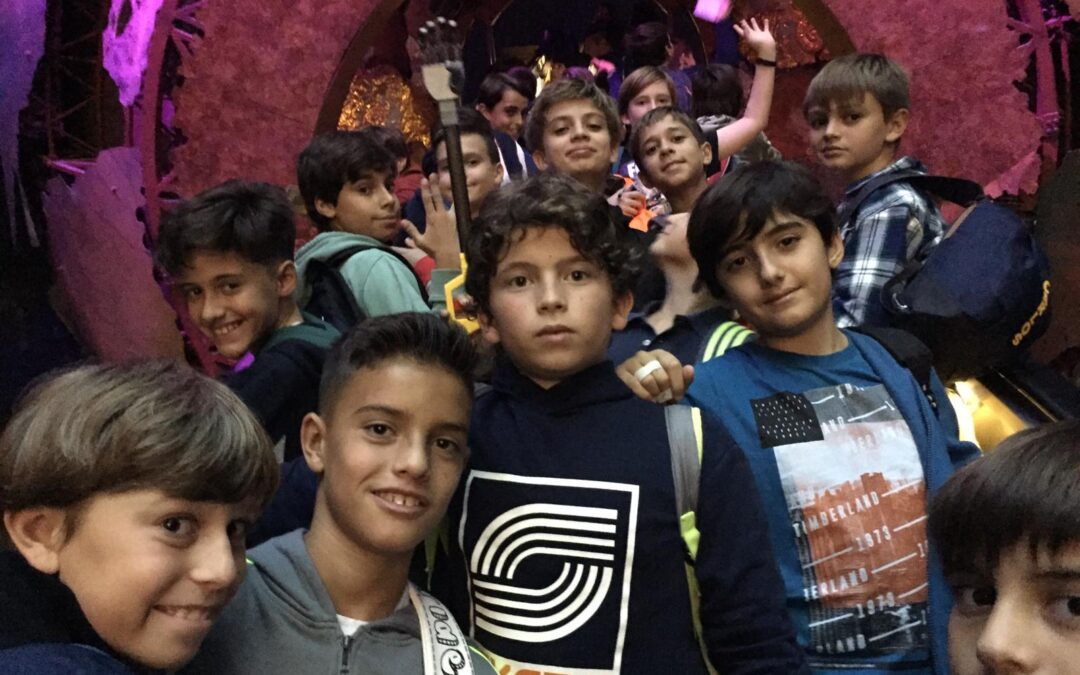Al igual que los adultos, los niños también afrontan conflictos y hay que ayudarles a saber gestionarlos. Hoy os damos en Logos International una serie de técnicas para la resolución de conflictos desde un prisma positivo.
Debemos ser conscientes de que, en numerosas ocasiones, el problema no radica en el conflicto en sí, sino en la carencia de herramientas para gestionar la resolución de conflictos, lo que puede limitar el desarrollo de las habilidades sociales e incluso cognitivas.
Beneficios de las técnicas de resolución de conflictos
Son muchos los beneficios que se pueden conseguir enseñando a los niños distintas técnicas para la resolución de conflictos. Deben disponer de ciertas habilidades sociales y emocionales para poder resolverlos.
La adecuada gestión de conflictos provoca una situación idónea que ayuda al niño a:
- Realizar un reconocimiento de sus emociones.
- Desarrollar su capacidad de empatía.
- Priorizar situaciones.
- Reforzar su autoestima.
- Sentir seguridad al enfrentarse a ciertas situaciones.
- Tomar decisiones.
- Saber escuchar y dialogar.
- Estimular el pensamiento reflexivo y crítico.
- Desarrollar la creatividad.
- Tener una expresión corporal más relajada durante el conflicto.
Además, la resolución de conflictos en los niños hace que pasen tiempo juntos buscando posibles soluciones a las distintas diferencias y situaciones de tensión, lo que también permite mejorar las relaciones entre ellos.
Pasos para la resolución de conflictos
Normalmente, la resolución de conflictos se basa en un proceso de mediación y de empatía, pero también se pueden destacar otros pasos que ayudan a resolverlos. Entre ellos:
- Identificar el conflicto: es importante que los niños identifiquen cuál es el problema que originó el conflicto y que sean capaces de expresarlo.
- Reconocer las emociones: es vital que reconozcan sus emociones y las identifiquen para poder solucionar el conflicto. Es bueno generar una ronda de preguntas en la que el niño pueda expresar cómo se siente, qué le hace sentir así o por qué reacciona de la forma en que lo hace.
- Generar soluciones: la creatividad y la colaboración son claves para generar soluciones. Es importante que se planteen preguntas a los niños que permitan dar posibles soluciones, por ejemplo: ¿Qué puedo hacer para ayudar? ¿Qué harían otros niños frente a esa situación?
- Valorar y probar cada solución: cuando hay un proceso de valoración de las soluciones planteadas, los niños se sienten escuchados. Este proceso permite ir valorando cada una de las propuestas, en base a las ventajas e inconvenientes de cada opción.
- Recordar los pasos: se debe aprovechar la oportunidad para recordar los pasos de las técnicas de resolución de conflictos. De esta forma se convierte en un hábito cotidiano.
- Evaluar lo ocurrido: reforzar los sentimientos positivos contribuirá a mantener el control emocional ante conflictos futuros.
5 consejos para solucionarlo
Las técnicas más empleadas para la resolución de conflictos suelen ser el diálogo, la cooperación y la empatía. Adicionalmente se pueden dar algunos escenarios que favorezcan un ambiente idóneo para aportar soluciones. Por tanto, hay que tener en cuenta los siguientes consejos:
1. Relajarse
Es importante que ante cualquier conflicto los niños se encuentren calmados. Ninguna solución coherente surgirá mientras se encuentren molestos o emocionalmente frágiles.
2. Saber disculparse
Alentar a los niños a disculparse, dependiendo de la situación, ayudará a reparar las relaciones con los demás y abrirá las puertas para el diálogo y las posibles soluciones.
3. Reforzar la empatía
Cuando el niño es capaz de ponerse en el lugar del otro, la resolución del conflicto llegará más rápido y será más eficaz.
4. Los adultos pueden servir de ejemplo
Definitivamente los niños aprenden más del ejemplo (imitación) que de las palabras. Si observa en sus padres o maestros que hay formas diferentes de abordar los problemas, tratará de imitarlo, y por supuesto, esto ayudará a solucionar cualquier problema entre los niños.
5. Dramatizaciones
Una buena forma para que los niños practiquen e incorporen la resolución de conflictos, es a través de los juegos de roles o de situaciones hipotéticas. Estas actividades permiten a los niños la posibilidad de valorar distintas perspectivas y hacen que lo vean como algo natural.
La capacidad para resolver conflictos es primordial para el control de las emociones dentro y fuera de la escuela. Es un proceso que involucra una gran cantidad de habilidades cognitivas como la creatividad, la memoria, la compresión o la atención, entre otras.
En Logos International, colegio privado situado en Las Rozas, le damos mucha importancia a la resolución de conflictos y ponemos en marcha adaptaciones metodológicas o curriculares para garantizar el éxito y la convivencia de nuestros alumnos.


